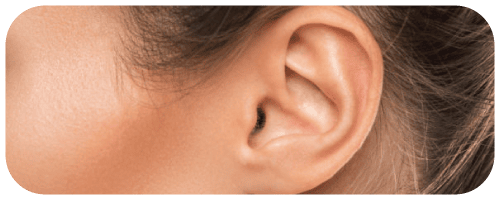Noise induced hearing loss

Noise-induced hearing loss is a permanent condition caused by damage to the inner ear’s hair cells from prolonged or sudden exposure to loud sounds, leading to reduced hearing ability. It typically results from noise levels exceeding 85 decibels over time, such as from industrial equipment, loud music, or sudden blasts, like gunshots, which harm the cochlear hair cells that transmit sound signals to the brain. Since these cells do not regenerate, the hearing loss is irreversible, and symptoms like muffled hearing, difficulty understanding speech, or tinnitus (ringing in the ears) may develop gradually or immediately, depending on the exposure’s intensity and duration.
The severity of noise-induced hearing loss depends on the loudness, duration, and frequency of noise exposure, with sounds above 100 decibels capable of causing damage in as little as 15 minutes. Common sources include occupational environments like factories or construction sites, as well as recreational activities such as concerts or using personal audio devices at high volumes. Prevention is critical and includes using protective gear like earplugs or earmuffs, limiting exposure time, and adhering to safe listening practices, such as keeping audio devices at 60% volume for no more than 60 minutes. Workplace regulations and public education aim to reduce risks, but individual actions to control noise exposure are essential for protecting long-term hearing health.

What happens to you?
- Permanent Damage to Hair Cells: Noise-induced hearing loss results from irreversible damage to the cochlea’s hair cells, which are responsible for converting sound vibrations into electrical signals for the brain, leading to permanent hearing impairment.
- Reduced Hearing Sensitivity: Affected individuals experience difficulty hearing, especially in noisy environments, with sounds appearing muffled or conversations becoming hard to follow.
- Tinnitus Development: A common symptom is tinnitus, characterized by persistent ringing, buzzing, or hissing in the ears, which can be disruptive and distressing.
- Gradual or Sudden Onset: Hearing loss can develop gradually from prolonged exposure to loud sounds (e.g., machinery or music) or occur suddenly from intense noise (e.g., explosions), depending on the exposure’s nature.
- Impact on Quality of Life: The condition may lead to social isolation, communication challenges, and emotional distress due to difficulties in understanding speech or enjoying everyday sounds.
How to manage hearing loss
- Use Hearing Protection: Wear earplugs or earmuffs in loud environments, such as concerts, construction sites, or when using noisy equipment, to reduce exposure to harmful sound levels.
- Limit Noise Exposure: Follow the 60/60 rule for personal audio devices (60% volume for no more than 60 minutes) and take breaks from loud environments to minimize cumulative damage.
- Monitor and Test Hearing: Regularly check hearing health with audiologist visits or hearing tests, especially if exposed to occupational or recreational noise, to detect early signs of loss.
- Use Hearing Aids or Assistive Devices: For those with existing noise-induced hearing loss, hearing aids or cochlear implants can amplify sounds and improve communication, tailored to the degree of hearing loss.
- Educate and Advocate: Stay informed about safe noise levels and advocate for quieter environments, such as enforcing workplace noise regulations or using noise-canceling technology, to prevent further damage.


